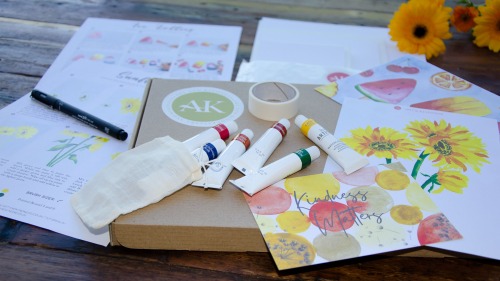Nurture Your Mental Health This Autumn

During the cold, dark autumn months, it's a lot easier to let our mental health slip
It’s easy to get mentally sucked in by the cold, dark autumn and winter months – and for many, this time of year can be especially challenging. Long, dark days and cold weather can often make us retreat to the confines of our home, or make us feel particularly demotivated.
The pandemic has also presented a surge in mental health cases – with data from the Office for National Statistics revealing that depression rates have doubled since the pandemic began. In light of these alarming figures, not-for-profit organisation Insight IAPT launched a brand new online platform to make access to mental health support easier for those who need it most. Although the organisation is based in Newcastle, their services span across the country – ensuring anyone and everyone has access to support when they need it most.
Sara Woodhead acts as Clinical Lead for the Insight IAPT national team. After initially training as a cognitive behavioural psychotherapist, and working within the mental health sector for 14 years, Sara now provides clinical support to therapists within the organisation, as well as cognitive behavioural therapy to patients with mental health difficulties.
With mental health issues on the rise, Sara acknowledges that the autumn and winter months can be a very common trigger for low mood, lack of motivation and poor concentration – so it’s essential around this period to make looking after our mental health a top priority.
‘Our mood is directly influenced by what we do,’ says Sara. ‘So making informed choices about how we structure our days has a huge impact on our mental health.’
‘The key area for everyone to focus on is developing a structure and routine which includes valued activity. Valued activity is anything we do that fits with what gives us a sense of purpose – so it’s different for everyone. Examples I use with patients include committing to regular meet-ups with friends, learning a new skill or language, donating time to a charity you would like to support, and even playing a sport or attending a regular exercise class.
‘Be creative and experiment with activities you’ve never tried before,’ says Sara, ‘and see how it impacts your overall wellbeing. Structuring this into your week to fit around all your necessary demands then creates balance – which helps everyone become more psychologically resilient.’
Ahead of Mental Health Month and World Mental Health Day, Sara hopes we can ditch the on-going stigma around mental health issues and create a more compassionate approach to those who may feel ashamed or afraid to speak up in times of need.
‘Raising awareness for mental health issues is important at any point – and we need to make this an on-going priority so people are able to reach out for help. World Mental Health Month and Day are great to keep conversations going, but more needs to be done continuously to de-stigmatise mental health issues.’
Sadly, there’s no single cure that prevents any of us from struggling with our mental wellbeing. But Sara has offered some top tips to help keep your mind, body – and soul – as healthy and in-tune as possible over the coming months.
- Get out of the house after work – don’t sit around ‘waiting’ to feel motivated.
- Structure your weeks to create a balance of valued activities alongside your everyday demands.
- Engage in activities that give you a sense of purpose.
- Reduce screen time – too much engagement in social media lowers mood and motivation.
- Get adequate sleep. Six to eight hours is great, but be aware that too much is as detrimental to our mood as too little.







